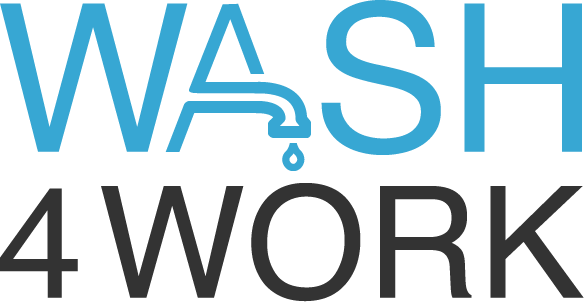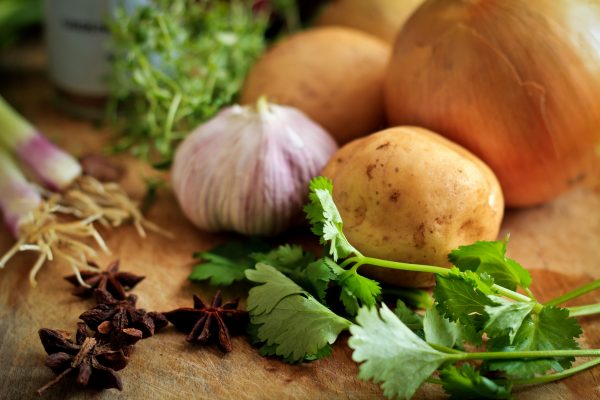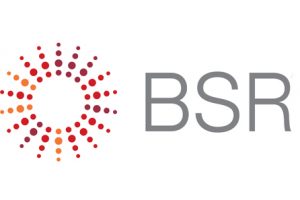Overview
Through the Seeds of Prosperity programme, the Global Alliance for Improved Nutrition (GAIN), the Sustainable Trade Initiative (IDH), and Unilever are working through commodity supply chains to improve workers’ diets and hygiene practices.
GAIN, Unilever, and the Sustainable Trade Initiative (IDH) saw an opportunity to improve the nutrition and health of farmers, workers and their families in Unilever’s supply chains, while working to increase supplier and worker satisfaction, productivity and brand loyalty. A successful pilot programme in tea estates and factories in Tamil Nadu, India increased the number of food groups that supply chain workers are eating, with the aim of improving both their intake of essential micronutrients and their hygiene practices.
The Seeds of Prosperity programme aims, through commodity supply chains, to improve tea sector workers’ diets and hygiene practices. A successful pilot has reached 2,600 farmers in Tamil Nadu, India and the programme will now be replicated in tea farming communities in Assam as well as Kenya and Malawi, benefiting a further 300,000 people.
Based on the success of this pilot, GAIN is expanding the ‘Seeds of Prosperity’ programme to tea value chains in other locations in Tamil Nadu, Assam, Kenya and Malawi, benefiting a further 300,000 people together with the Sustainable Trade Initiative (IDH) and Unilever.
Synergies with company components:
Examples from Unilever (Current Synergies):
Annapurna iodized salt: Part of the training for farmers and workers.
Lifebuoy: Part of the training for farmers and workers.
BlueBand national Good Breakfast Campaign in Kenya: A diverse diet can already start at breakfast.
Lipton tea: Unilever tea brand.
Examples from Unilever (Potential synergies):
Acumen Cookstove program in Kenya: Link a diverse diet to efficient cooking.
Unilever Women Empowerment Program: The tea sector has the biggest female workforce.
Knorr fortified products: Potential synergies.
Country(ies) where the intervention is taking place
India and Kenya.
Who is involved?
Global, local, supply chain.
Strategic partners: IDH, GAIN and Unilever.
Implementation partners: Solidaridad, Unilever and Catalyst Management Services.
Objectives
Improve nutrition in smallholder farmers (SHF).
GAIN, Unilever, and the Sustainable Trade Initiative (IDH) saw an opportunity to improve the nutrition and health of farmers, workers and their families in supply chains, whilst working to increase supplier and worker satisfaction, productivity and brand loyalty.
Target markets
Tea estates.
Scope of intervention
Supply chain.
Which elements of WASH are covered?
Hygiene and Nutrition.
Which elements of the Framework for Business Action on WASH are covered?
Engage with stakeholders, Taking Action, Collective Action.
Methodology and tools that have been developed or are planned
5 steps to change behaviour
Through an approach that involves five steps to change behaviour, the Seeds of Prosperity programme ensures that dietary diversity is easy to understand and that the results are lasting. Farming families are trained on why a diverse diet matters, what it looks like, and how others can improve their diets. They learn diverse eating habits and are encouraged to monitor their progress and so directly experience the benefits. The nine-week programme is comprised of six weeks of nutrition training and 21 days of handwashing training. Both parts have five key components: Awareness, Commitment, Reinforcement, Reward, and Follow up.
Indicators/metrics that have been developed to monitor/track progress
The Seeds of Prosperity programme is grounded in the proven ‘five levers of change’ approach to behavior change. The headline message of the programme is that ‘our families are our most important crop’. First, supply chain workers are selected to be ‘master trainers’ and trained on why a diverse diet matters, what it looks like, and how other estate workers or farmers can improve their diets. These master trainers then go on to teach groups in their community. The nine-week programme is comprised of six weeks of nutrition training and 21 days of handwashing training. Both parts have five key components.
Suppliers continue to reinforce the nutrition and hygiene messages and GAIN continues to monitor the programme, collecting evidence on its long-term impact on participants.
Farmers and workers receive a weekly training for 9 weeks. The first five weeks focus on nutrition and the last four weeks focus on hygiene.
Increased dietary diversity The Minimum Dietary Diversity for Women, defined as at least five of the ten food groups, is used as a proxy indicator to reflect likelihood of micronutrient adequacy of diets of women of reproductive age (15-49 years). Measured as Indicator SDG target 2.
Improved handwashing with soap helps maintain health and prevent spread of diseases. Measured as Indicator SDG target 6.
Outcomes, successes and ongoing challenges
To be highlighted by LP (NL Gov). First partnership that can track to nutrition SDG.
Impact of the pilot programme
The pilot programme, co-created with Solidaridad, reached 2,600 people across four tea factories and estates in Tamil Nadu, India. Women who participated in the programme reported a 41% increase in the variety of foods consumed, almost double the 24% increase in women who were not part of the programme. There was also a 41% increase in the number of households which grew vegetables in their gardens. The hygiene component saw 78% of tea growers washing their hands before lunch daily, compared to 51% of growers who did not participate in the programme.
In addition to this, participants reported high levels of engagement with the programme, with 98% saying it was likely to positively affect their decision to stay with the tea estate or factory. Participants’ personal perspectives suggested that the programme reduced absenteeism and healthcare costs, and increased loyalty to their tea factories/suppliers.
Links to learn more
https://www.idhsustainabletrade.com/initiative/seeds-prosperity-programme/
https://www.idhsustainabletrade.com/uploaded/2017/01/Seeds-of-Prosperity.pdf
Contact
Jonathan Gill (Global Partnership Manager, Unilever)





